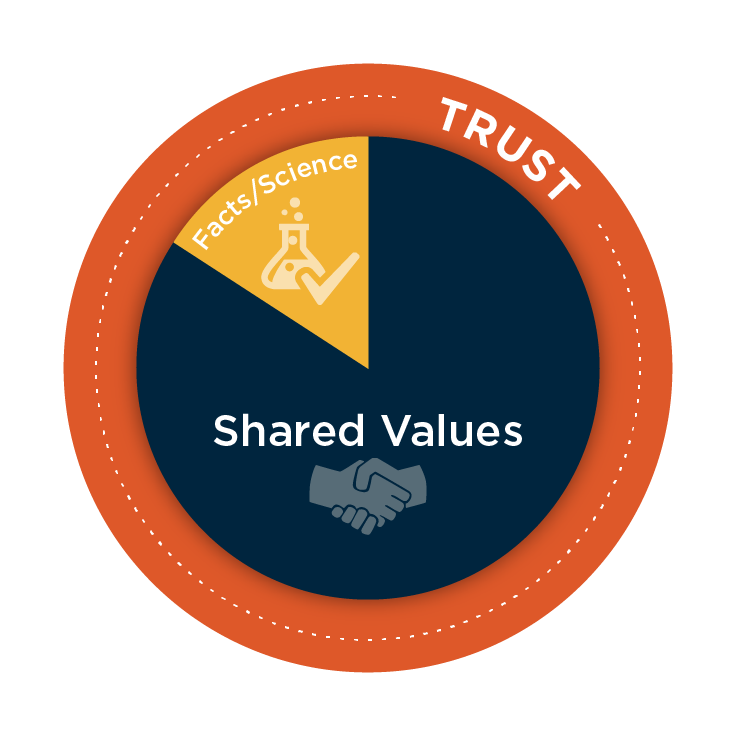The secret to effective engagement
Stakeholder Engagement | October 30, 2018
Building trust is an active, intentional process. It requires engaging with stakeholders – including those who may not like who you are or what you do.
Engagement Is Worth The Effort
While it may make little sense to engage intractable ideologues, there is much to be gained from engaging reasonable reformers. Engaging a wide range of stakeholders demonstrates that your organization is reasonable, rational and willing to listen to other’s viewpoints on controversial issues.

Failing to engage and being tone deaf to the public interest are two drivers of social outrage. On the other hand, listening to stakeholders and acknowledging they have been heard can help build trust, even in the most difficult circumstances.
Asking questions, listening and effectively engaging can help overcome the “big is bad” bias. One of the world’s largest Big Food companies has made engaging stakeholders a strategic priority. Cargill has 155,000 employees in 70 countries and is involved in beef, poultry, eggs, grain, oilseeds, cotton, cocoa, palm oil, animal nutrition and more. Traditionally, it’s been a private organization, but that is changing. The proof of successful stakeholder engagement is not changing minds but forming relationships. Beneath all the debate about policies and practices, there is often a fundamental value shared by both stakeholders and the organization. This could be protecting natural resources, ensuring animal well-being or addressing malnutrition. Finding those shared values is the first step in developing trust and forming a lasting relationship.
“Over the last 15 years we’ve been on a remarkable journey where we woke up to the realization that if we weren’t telling our story, others would,” said Devry Boughner-Vorwerk, corporate vice president of corporate affairs. “It took some self-reflection to realize we didn’t have to be defensive and we had to make a commitment. Our leaders made a declaration that they would lead and identified thought leadership and stakeholder engagement as one of our key business objectives.”
Through this process, Boughner-Vorwerk said that Cargill has discovered they do have shared values with a wide range of shareholders and they are increasingly comfortable meeting with those who don’t share the same view on issues. Engaging stakeholders has helped Cargill fulfill their core purpose to nourish the world in a safe and sustainable way.
“We’re looking for stakeholders who are focused on solutions. We may engage agitators, but we’ll partner with those who are focused on finding a solution,” she said. “We have the ability to impact society in key areas and engaging gets us further down the road than putting up a wall. Effective stakeholder partnerships are core to our very existence as a company.”
Effective engagement is not a one-size-fits-all-solutions, but the principles of shared values and transparency are proven ways for the food system to succeed.
For more insights into engagement and growing trust, check out Charlie Arnot’s book Size Matters: Why We Love to Hate Big Food, available on Amazon.